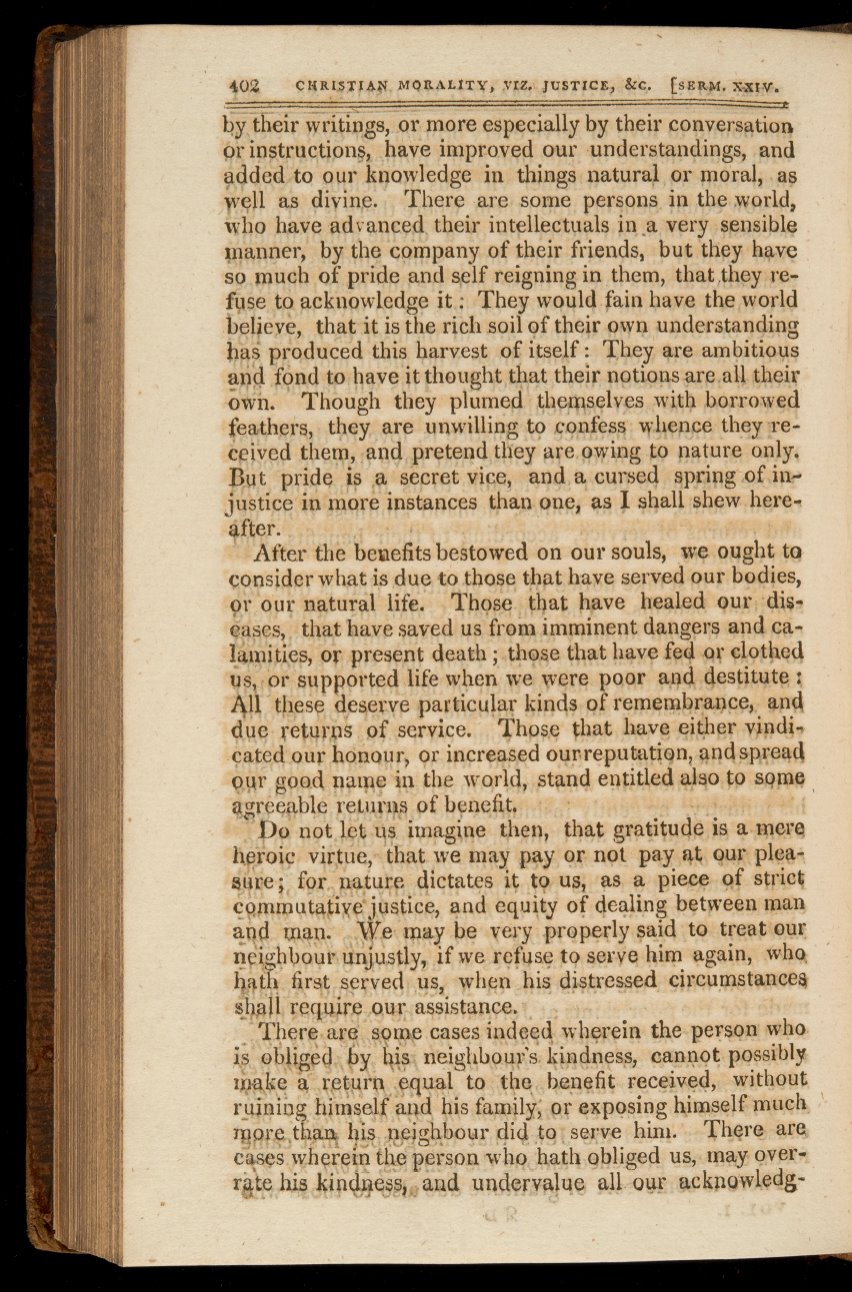

402
CHRISTIAN MORALITY,
VIZ.
JUSTICE,
&C.
[SEEM.
S
%IV.
by
their
writings,
or
more especially
by
their conversation
or instructions,
have improved
our
understandings,
and
added
to
our
knowledge in things
natural or
moral,
as
well
as
divine.
There
are
some
persons
in
the
world,
who
have
advanced their intellectuals
in
.a
very sensible
manner,
by
the company
of
their
friends,
but
they have
so
much
of
pride and self reigning
in them,
that
they
re-
fuse to
acknowledge
it
:
They
would fain
have the world
believe,
that
it
is
the rich
soil
of their
own
understanding
has
produced
this
harvest of itself
:
They are ambitious
and
fond
to
have
it thought that their
notions are
all
their
own.
Though
they plumed themselves with
borrowed
feathers,
they
are
unwilling to
confess
whence they
re-
ceived them,
and pretend
they
are
owing to
nature
only.
But
pride
is
a
secret
vice,
and a cursed
spring of
in-
justice
in more instances
than
one, as
I
shall
shew
here-
after.
After
the
benefits bestowed on
our
souls, we
ought
to
consider what
is
due
to
those
that
have served
our
bodies,
or our natural
life.
Those that
have healed
our
dis-
eases,
that
have saved
us
from
imminent dangers and ca-
lamities, or present death
;
those
that
have
fed
or
clothed
us,
or
supported
life
when
we
were
poor and destitute
:
All these
deserve
particular
kinds
of
remembrance, and
due returns
of
service.
Those
that
have
either
vindi-
cated our honour,
or
increased
our reputation,
and spread
our
good
naine
in the
world, stand
entitled
also to some
agreeable
returns of
benefit.
Do not
let
us
imagine then,
that
gratitude
is
a
mere
heroic virtue,
that
we
may
pay or
not
pay
at
our plea
-
ure;
for
nature
dictates
it
to
us,
as
a piece
of
strict
commutative justice, and equity
of
dealing between
man
and
man.
We
may be very
properly
said to
treat
our
neighbour
unjustly,
if
we
refuse
to serve him
again,
who
halt
first served
us,
when
his
distressed circumstances
shall
require our
assistance.
There
are
some cases
indeed wherein the person
who
is
obliged
by his
neighbours
kindness,
cannot
possibly
make
a
return
equal
to
the
benefit received, without
ruining himself
and
his family,
or exposing himself
much
more
than
his
neighbour
did
to
serve him.
There
are
cases
wherein the person
who
bath
obliged
us,
may
over-
rate
his
kindness,
and undervalue
all
our acknowledg-

















